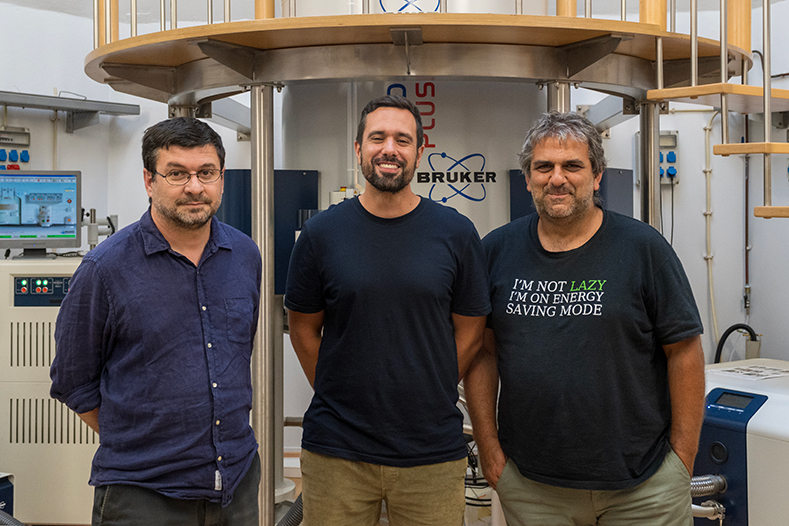Flies fight Parkinson's with Camarinha leaves
Oeiras, 30 May 2023
Parkinson’s disease is a neurodegenerative disorder that affects the control of movements, causing severe trembling and eventually death. The disease affects over 6 M people worldwide, causing a severe decrease in the quality of life of patients affected by it.
There is no cure for Parkinson’s, and the existing therapies can only control some of the symptoms. At the cellular level, the disease arises when there is a toxic deposition of the protein alpha-synuclein, or αSyn. These deposits agglomerate in neurons and eventually interfere with the brain function, causing the loss of movement control. αSyn also has the ability to interact with cell membranes through various mechanisms, forming pores, decreasing its thickness and even affecting the cell nucleus.
A recent paper by the teams of Pedro Domingos and Cláudia Santos, ITQB NOVA & NOVA Medical School researchers, respectively, published in Nature Communications, identified a compound, called Genipin, present in the Corema album shrub capable of neutralizing the harmful effects of αSyn. This shrub, known as Camarinha, is very common in the sands and dunes of the Iberian Peninsula, which makes it easily accessible and abundant. The compound was administered to fruit flies (Drosophila melanogaster) with Parkinson’s. “Genipin reduced the toxicity and aggregation of αSyn and causing a visible improvement in the control of movement by the insects”, explains Pedro Domingos, head of the Cell Signaling in Drosophila laboratory.
At a time when the mechanisms of Parkinson’s disease are still not fully understood, this small, natural molecule that can reduce the toxic effects of αSyn opens new doors. “For now, we have shown that genipin works very well at preventing the development of the disease in fruit flies”, says ITQB NOVA researcher Gonçalo Poças. For the researcher, “the next step will be to move forward with mammalian testing as soon as we have additional funding”.
This study started when Cláudia Santos was a researcher at ITQB NOVA. It also involved the ITQB NOVA researcher Luís Gonçalves and a strong international partnership with iBET, The James Hutton Institute, Delft University of Technology, Universidade Lusófona, the German Center for Neurodegenerative Diseases, the Max Planck Institute for Multidisciplinary Sciences, the University Medical Center Gottingen, and Newcastle University.
Funding was provided by Fundação para a Ciência e Tecnologia, the LS4Future associate Laboratory, La Caixa Foundation, Aga Khan Foundation, The European Research Council and H2020.
Original paper
Genipin prevents alpha-synuclein aggregation and toxicity by affecting endocytosis, metabolism and lipid storage
Rita Rosado-Ramos, Gonçalo M. Poças, Daniela Marques, Alexandre Foito, David M. Sevillano, Mafalda Lopes-da-Silva, Luís G. Gonçalves, Regina Menezes, Marcel Ottens, Derek Stewart, Alain Ibáñez de Opakua, Markus Zweckstetter, Miguel C. Seabra, César S. Mendes, Tiago Fleming Outeiro, Pedro M. Domingos e Cláudia N. Santos.
DOI: 10.1038/s41467-023-37561-2
In the news:
Doença de Parkinson: equipa portuguesa identifica planta que recupera movimento parcial, in público, 12 May 2023








